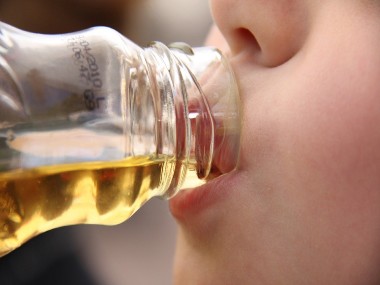Are you a health-conscious parent and have decided to cut off cookies, cakes, soda and sugar-loaded treats from your kid’s diet to avoid chances of obesity and other health risks? You should know that these aren’t the only goodies that add to their weight or increase their chances of developing diabetes, high cholesterol or heart diseases later. While these products are sources of firsthand sugars, you should be more worried about secondhand sugars which sneak into your diet and that of your children. Secondhand sugars are just as harmful — maybe even more so — because they create an obesogenic environment that promotes sugar cravings; it can later become an obesity-inducing eating disorder. [caption id=“attachment_7900651” align=“alignleft” width=“380”]  Representational image. Image by PublicDomainPictures from Pixabay.[/caption]
What is secondhand sugar?
Secondhand sugars are found in foods and drinks that your child is exposed to passively and involuntarily. This can happen while you’re pregnant when your baby is an infant or even when he or she is growing up. Secondhand sugar is present in everything around us today: packaged baby food, formula for infants, fruit juices, breakfast cereals, sauces, processed snacks and canned fruits. You may have heard the argument that obesity is a behavioural issue, and moderating this behaviour can stop obesity. This argument doesn’t work with secondhand sugar, because in this case, your child is an innocent bystander who is not voluntarily choosing to consume sugar-loaded foods.
Secondhand sugar during pregnancy and lactation
A study conducted by the University of South California’s Department of Preventive Medicine in 2019 revealed that while sugar consumption by pregnant women can lead to complications like gestational diabetes, preeclampsia and premature birth, its effects on the fetus is just as bad. The study says that “maternal sugar intake during pregnancy may impact neonatal and childhood metabolism, taste perception and obesity risk.” So that plate full of sweets you gorged down during a festive occasion while you were pregnant is basically conditioning your baby to crave sugars even before he or she is born. Even if you hold off until after your baby is safely delivered, and then enjoy a slice of cake or packaged fruit juice every day, your breastmilk will deliver extra sugars to the baby. What’s more, it’s not just mothers who are responsible for delivering secondhand sugars to infants. The same study also indicated that preconception paternal sugar intake can induce metabolic changes in the fetus and create preconditioning for sugar consumption.
Secondhand sugar in early childhood
This conditioning continues well beyond pregnancy and lactation, and it’s not just limited to your home. Yes, you may have introduced high amounts of secondhand sugars in your growing baby’s diet via packaged baby foods, but once your child is of school age, the exposure increases. This is the time when your child will be exposed to aggressively-marketed products like fruit juices, cereals and growth-boosting drinks which claim to be “fortified with vitamins and minerals”, but are quite high in the alternative, artificial sugars and preservatives. It’s important to remember that while natural sugars found in fruits — fructose — is considered healthy and a vital source of nutrients when the same fructose is delivered through corn syrup or artificial means, it can cause huge damage to your child’s development. Corn syrup and concentrated fruit drinks, for example, deliver a much higher dose of fructose than a single fruit does. Another study by the University of South California in 2014 reveals that consumption of high levels of fructose in the early developmental stage can damage neural functioning and cognitive ability. And while choosing artificial sweeteners may seem to be the healthier choice, it’s important to remember that high doses of those can also impair your child’s growth and lead to weight gain in the future. You may worry about your baby being exposed to secondhand smoke while you’re pregnant and cut off sources of unhealthy sugar after your baby arrives. That’s a healthy practice, but you should also think actively about secondhand sugars and cut them off before they get the chance to precondition your child and increase his or her risk of obesity. For more on this topic, please read our article on Foods to eat and avoid during pregnancy_._ Health articles in Firstpost are written by myUpchar.com, India’s first and biggest resource for verified medical information. At myUpchar, researchers and journalists work with doctors to bring you information on all things health.


)

)
)
)
)
)
)
)
)



